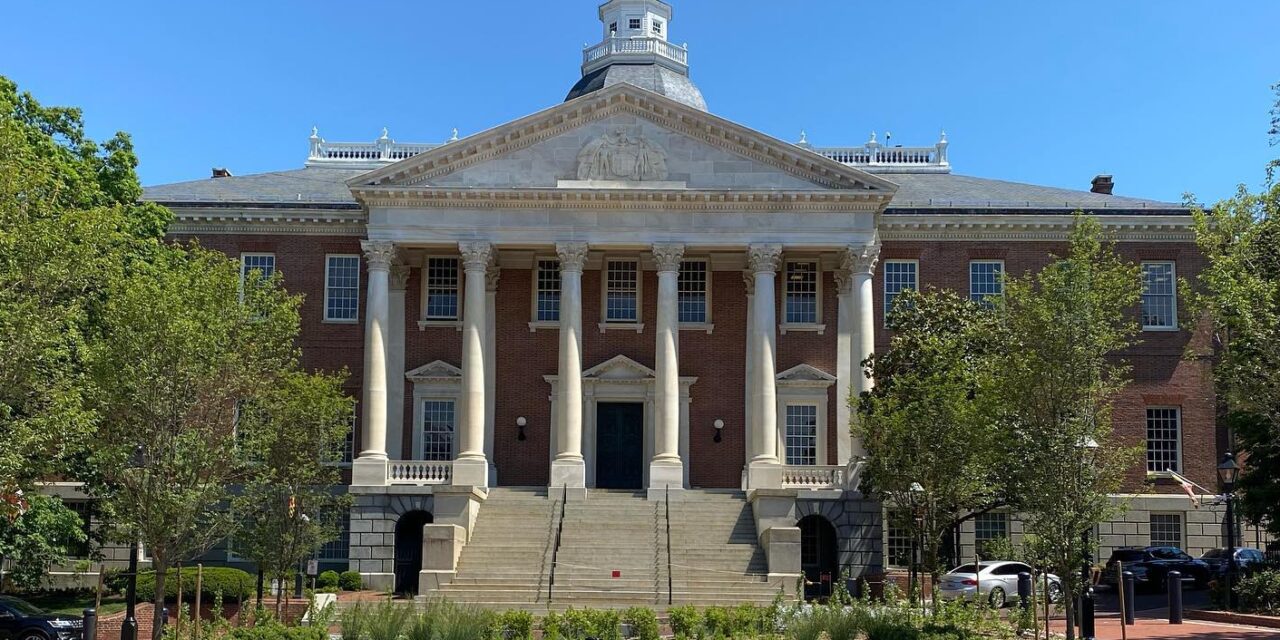By Delegate Jason C. Buckel, House Minority Leader and Delegate Jesse T. Pippy, House Minority Whip
Maryland has started a new chapter with a new Administration. However, many of the challenges our citizens face remain the same. The House Republican Caucus has introduced a legislative package of reasonable, common-sense solutions to help address these challenges. Our legislative package focuses on topics that matter most to Marylanders: reducing crime, improving education, and restoring our economy.
Rising violent crime has impacted nearly every community in our state. The safety of our citizens is a fundamental role of government. Maryland cannot be successful if our citizens do not feel safe. Those who endanger our communities must be held accountable. For far too long the policies coming out of Annapolis have tended to focus on coddling criminals, rather than protecting our citizens. We must remove violent criminals from our streets.
The No Bail for Violent Offenders Act of 2023 (HB 736) prohibits bail for an individual charged with a crime of violence if the individual has pending charges for a prior crime of violence. Additionally, the bill prohibits bail for a person charged with a crime of violence if they have had a prior conviction for a violent crime and the individual completed their period of parole and probation within 5 years of the subsequent charges. “Catch-and-release” policies for repeat violent offenders do not work and cannot continue.
Juvenile justice “reforms” implemented last year, have created some dangerous loopholes in our legal system that threaten the safety of our communities. Most children under the age of thirteen have been taken out of the jurisdiction of the Maryland judicial system and can only be prosecuted for the most violent crimes. These and other loopholes in our legal system make all our children less safe. For example, last year’s bill made it impossible for a 12-year-old in Anne Arundel to be prosecuted when he brought a gun and loaded ammunition clip to school in his backpack. The Juvenile Gun Offenses Accountability Act of 2023 (HB 753) will allow the appropriate prosecution of juveniles under 13 who commit gun crimes.
Maryland has some of the most restrictive gun laws in the United States, yet the number of murders and violent crimes committed with guns continues to grow every year, with the overwhelming majority of those committed with stolen guns. Astonishingly, the Maryland General Assembly has for years refused to make the theft of a firearm a felony. Again this year, the House Republican Caucus will offer the Gun Theft Felony Act (HB 750) and fight to close this absurd loophole in Maryland law.
Every child in our state deserves a quality education in a safe environment. Every year, Maryland makes historic investments in education, but still there are children trapped in failing schools that simply cannot meet their needs. The Right to Learn Act of 2023 (HB 737) acknowledges this fact. These families deserve a chance to choose alternative opportunities to get the education they need. The bill codifies the BOOST scholarship program that allows low-income students to attend approved private and parochial schools across the state. The bill also establishes Education Savings Accounts for families with children trapped in failing schools.
Children cannot learn in an unsafe environment. Our School Safety Enhancement Act (HB 738) will double local funding for school resource officers, enabling jurisdictions to keep our schools and students safe.
Students also need to be present in their classrooms to learn, and school funding is tied to enrollment. Currently, students are only counted once a year for enrollment purposes and, too often, students who are present on the first day of school eventually stop showing up. House Bill 739, the Truancy Reduction Act, will count students four times a year ensuring that schools are appropriately funded based on actual enrollment and that these missing students are identified, located, and are not “left behind.”
Maryland’s economy must grow in order to provide the employment opportunities and revenue we need to best serve our citizens. Government must help, not hinder, business and economic growth. Maryland currently ranks 46th in the nation in terms of its business tax burden. We also have one of the highest corporate tax rates in our region and this must change if we are to improve our regional economic competitiveness. The Economic Competitiveness Act of 2023 (HB 741) will reduce Maryland’s corporate income tax rate over the next five years.
To further strengthen Maryland’s economy, we must be able to retain our retirees by lessening their tax burden. We can start by helping our veterans. House Bill 767, the Military Pension Tax Freedom Act, takes an important step in this process by eliminating income tax on all military pensions. We must also eliminate some of the barriers to homeownership by removing unnecessary taxes and fees. The Affordable Housing Act of 2023 (HB 766) will eliminate the state’s transfer tax on home purchases of $350,000 and under, saving lower and middle-income homebuyers up to $1,750.
Another way to strengthen Maryland’s economy is to make sure our environmental regulations are more tailored to Maryland’s needs and not based on the adoption of extreme environmental policies from California – a state more than ten times our size and nearly 3,000 miles away. House Bill 487, Affordable Emissions Standards Act of 2023 would decouple Maryland from California’s vehicle emissions standards which bans the sale of gasoline-powered vehicles in a few years. This standard is a truly radical and foolish idea.
Marylanders want and deserve credible solutions to the problems we collectively face. Solutions are, in fact, possible. Not every challenge can be solved overnight, or in 90 days, but we believe the legislative initiatives our House Caucus is offering this Session are important steps in making Maryland a better place to live, learn, work, and retire.






Recent Comments